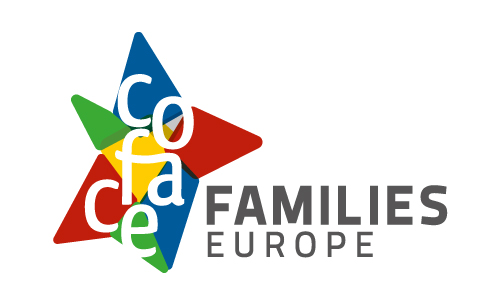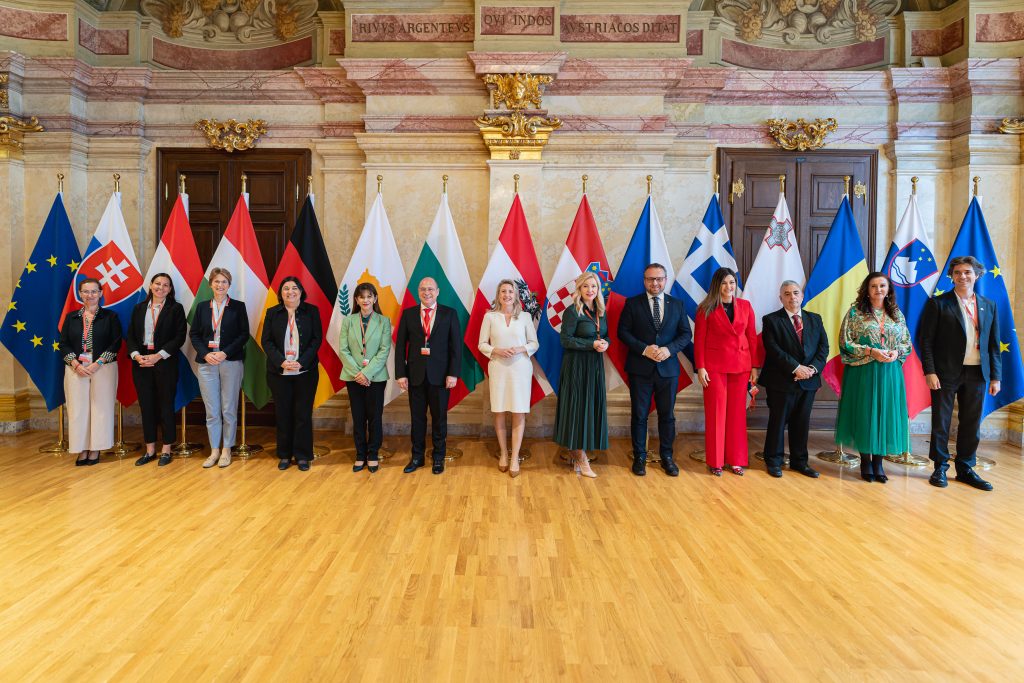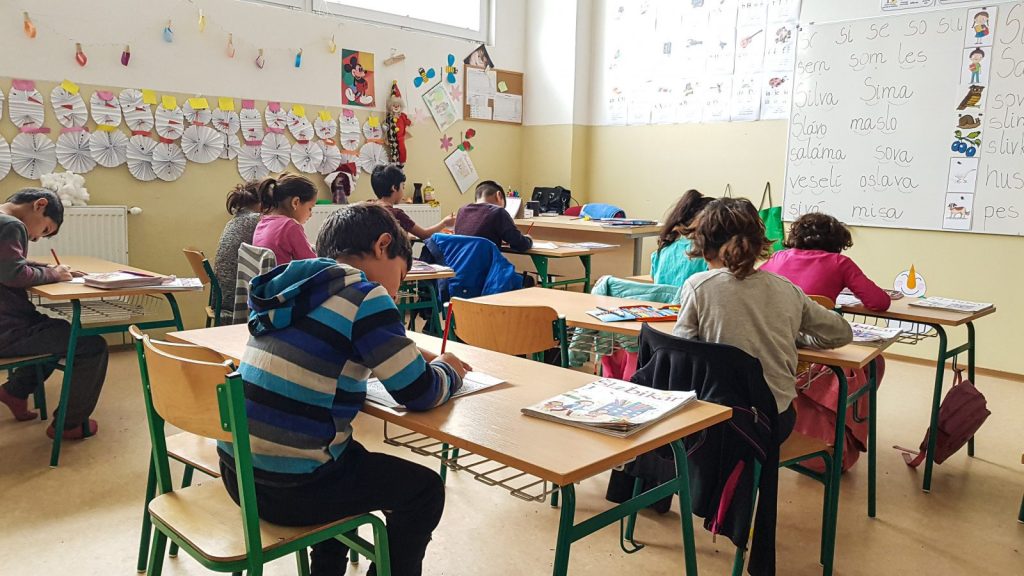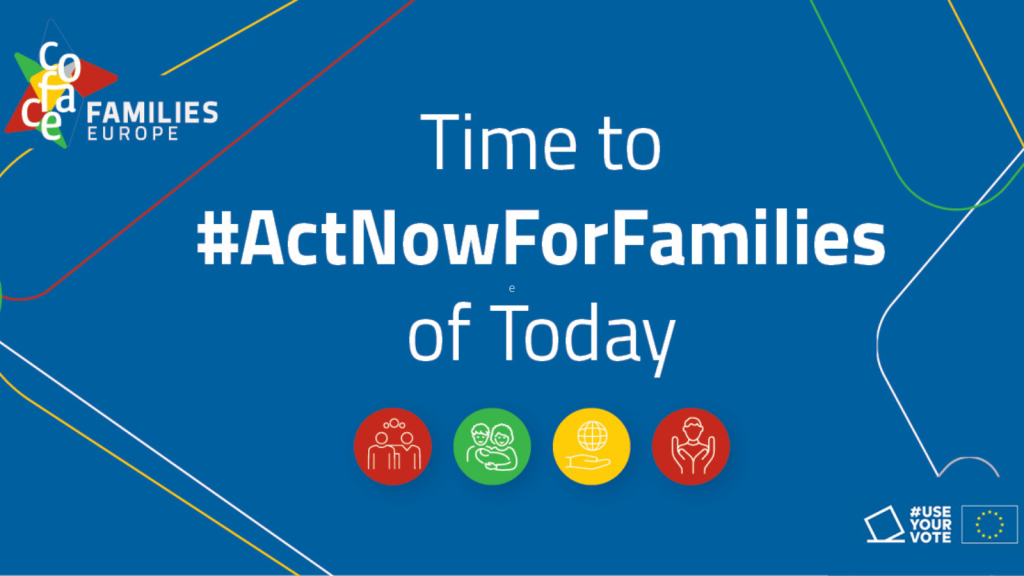As well as collecting data on families via different expert meetings (see the different meeting reports available on the website), COFACE actively builds bridges with research institutions through formal partnerships under Horizon Europe, and by advising different European research projects on work-life balance, the impact of digital transformations on children, early childhood education and care, long-term care and more. COFACE also supports academic institutions to build new research projects on social rights.
In relation to formal partners, COFACE is involved in two new Horizon Europe projects as policy and impact partner:
- rEUsilience – Risks, Resources and Inequalities: Increasing Resilience in European Families funded under Horizon Europe and lasting from 2022-2025. The problem that rEUsilience tackles is of lack of adaptive capacities or resilience (understood from a familial rather than individual perspective) and resulting dilemmas and inequalities. The context is one of fast-paced changes in labour markets and income security to which families must act as key responsive entities, cushioning potentially negative impacts and enabling/disabling risk-taking and change. In focusing especially on families that may not be able to respond and understanding the conditions that make for familial resilience more generally, the project answers 2 research questions: What challenges and difficulties are created or exacerbated for families by labour markets in the ‘new world of work’ and how do families try to overcome these? How do social policies contribute to familial resilience especially in terms of the extent to which they are inclusive, flexible and complementary? More here.
- Paths2Include – European Labour markets under pressure: New knowledge on pathways to include persons in vulnerable situations funded under Horizon Europe and lasting from 2023-2026. The overall objective of Paths2Include is to disentangle the dimensions of discrimination in the labour market to gain knowledge on how to develop inclusive labour markets for persons in vulnerable situations. The aim is to discover the importance of intersectionality related to how context puts people in vulnerable positions by focusing on three central labour market processes: recruitment, career trajectories, and work exit, in addition to predict risk factors of vulnerability in the future of work. We will use various empirical strategies to cover these processes and precarious work situations to deliver new knowledge on best practice in labour market inclusion.
____________
In relation to advising and ensuring policy relevance of EU research projects, COFACE is involved in the following four new projects (see the projects section of the website for ongoing projects).
- Transnational family dynamics in Europe funded under the COST programme, lasting from 2022-2026. COFACE is coordinating the policy group of this network which aims to deepen the knowledge of the growing, rapidly changing phenomenon and dynamics of transnational families by bringing together researchers and stakeholders from different disciplines and countries to address the need for transnational insights and to formulate policy and practice-oriented recommendations with an impact on international, national, sub-local and local practices. The network spans EU countries and beyond. More here.
- PlatFAMs, funded by CHANSE and lasting from 2022-2025. COFACE is advising the research partnership which has the goal to understand the digital lives of families. They will do this by tracing the activities and practices of families interacting with online platforms across Europe and explore how different generations – grandparents, parents, and children in each family – use digital media and online platforms in their everyday lives. In doing so we will unpack their digital lives, as lived experiences, comparing families in five European countries/regions (Norway, Estonia, UK, Romania and Spain/Catalonia). Digital platforms (like Facebook, Snapchat, and Instagram, but also platforms used within education and work) have become the dominating infrastructure for online participation and creation by all citizens and with huge impacts on our daily lives. The main research question is; What are the lived experiences and practices of families (teenagers, parents, grandparents) in dealing with digital transformations and participation across online platforms? More here.
- ALFA – Aligning Law with Family Arrangements: Non-traditional Families’ Contribution to Addressing Italy’s Demographic Crisis funded by Fondazione Cariplo, lasting from 2022-2024. COFACE is advising the research, which aims to study evolving family patterns in Italy. A recent report on the Italian Association for Population Studies illustrates remarkable evolutions, the first of which is the sharp decline in traditional nuclear families. These families now only account for about 1/3 of the total population. At the same time, single-person households are skyrocketing and nearly matching the share of traditional families. Marriage is no longer the only way of forming a stable union, nor is it necessarily the main arena for childbearing: increasingly more unions are formed as non-marital cohabitations, and increasingly more children are born to non-married parents. LGBTQ families also pluralize the landscape of modern family arrangements. The project adopts an interdisciplinary approach that combines demographic research with socio-legal research. The project explores three research questions: How widespread are non-traditional families in Italy? What are the actual and potential contributions of non-traditional families to Italy’s total fertility rate and what are the legal obstacles? What are the legal paths to modernize Italy’s law on access to parenting? More here.
- Transeuroworks – Transforming European work and social protection: a New proactive welfare state fit for the future world of work funded by Horizon Europe and lasting from 2022-2025. COFACE is advising this research project, which will provide analysis and policy recommendations for the future world of European work and social protection. It will provide new, more integrative understandings of how fundamental changes to the labour market and European context can be better and more proactively managed through national and European Union (EU) level social protection policies. At the centre of this research are three critical structural labour market transformations, i.e., green transition and decarbonisation, technological change (automation and digitalization), and the internationalisation of the workforce (through intra-European mobility and immigration).
- UNIC-towards user-centred funding models for long-term care funded under the European Union Programme for Employment and Social Innovation (EaSI). This project will help persons who receive long term care and support to actively participate in organising their own support. They will be able to do this based on their will, preferences and individual needs. The goal of this project is to help public authorities to implement user-centred funding models. The project is also aimed at helping service users in long term care and support (LTCS) to move to these funding models, as well as their service providers. User-centred funding models can include Personal Budgets. UNIC develops a framework and a toolbox with transferability guidelines to help service users, service providers and mainly public authorities to implement a user-centred funding model in long-term care and support. More here.





